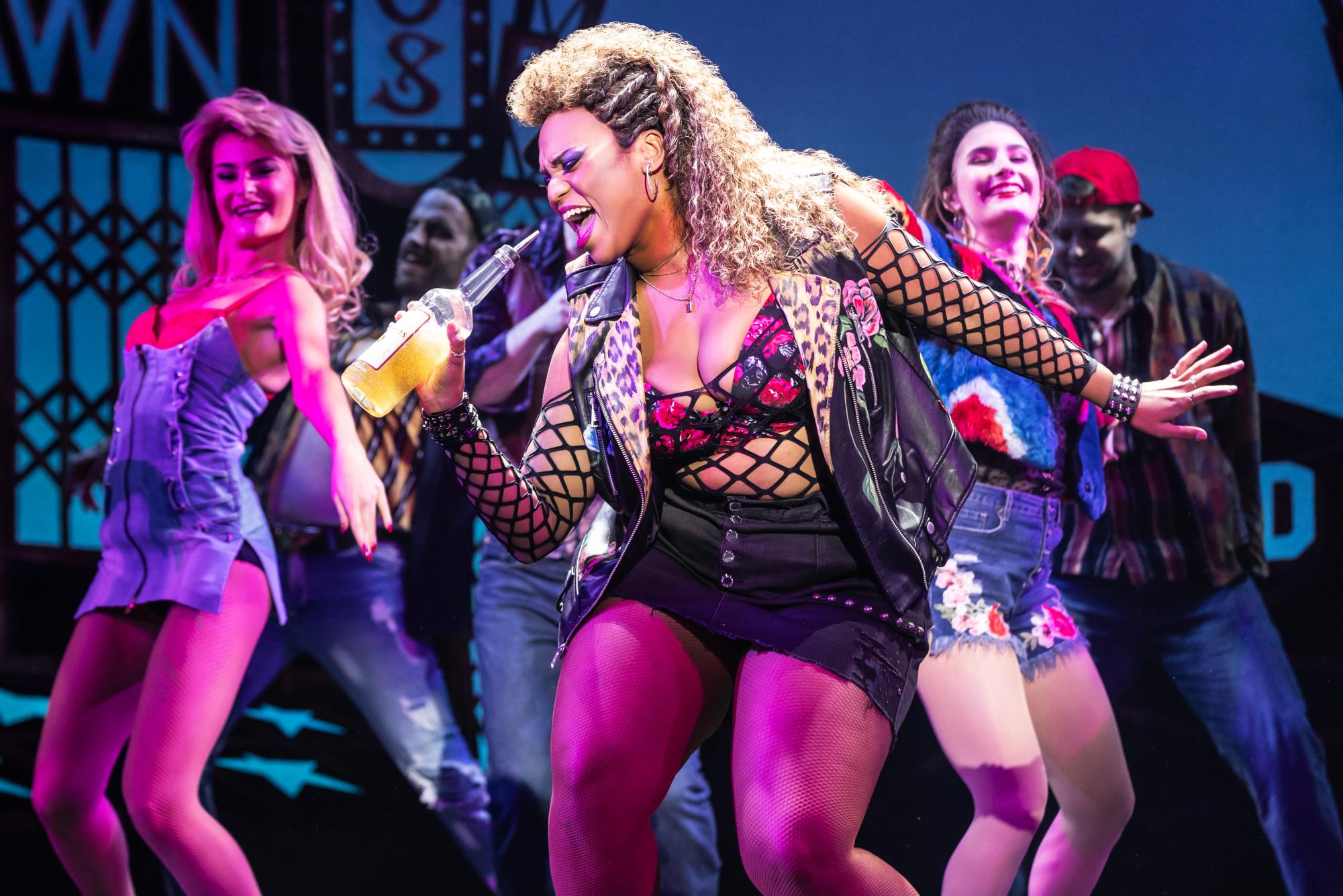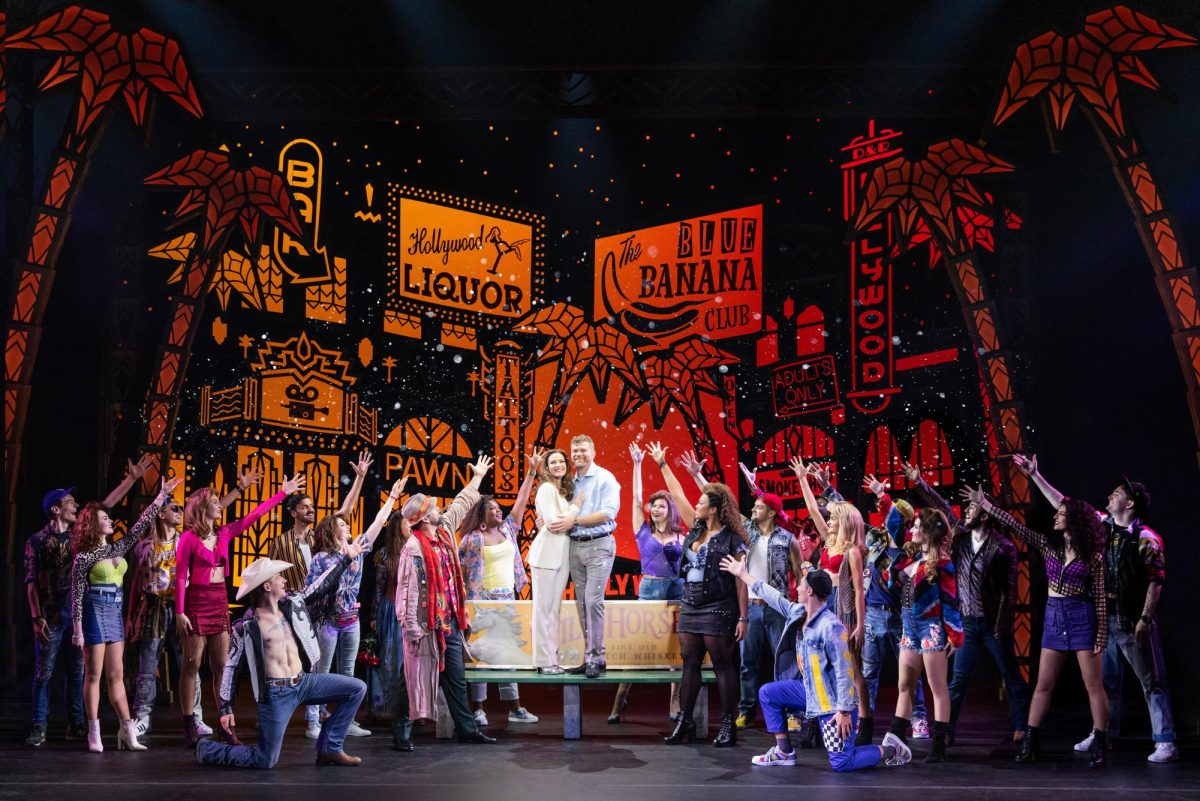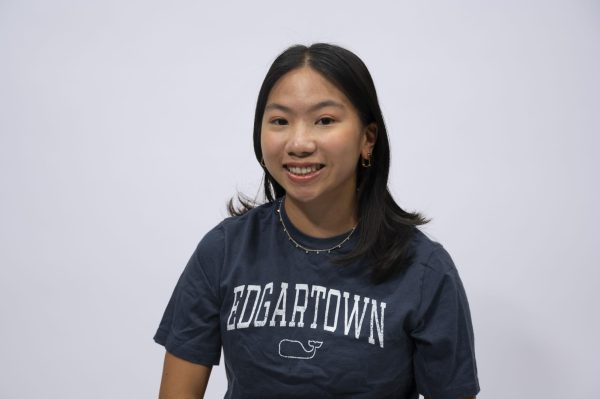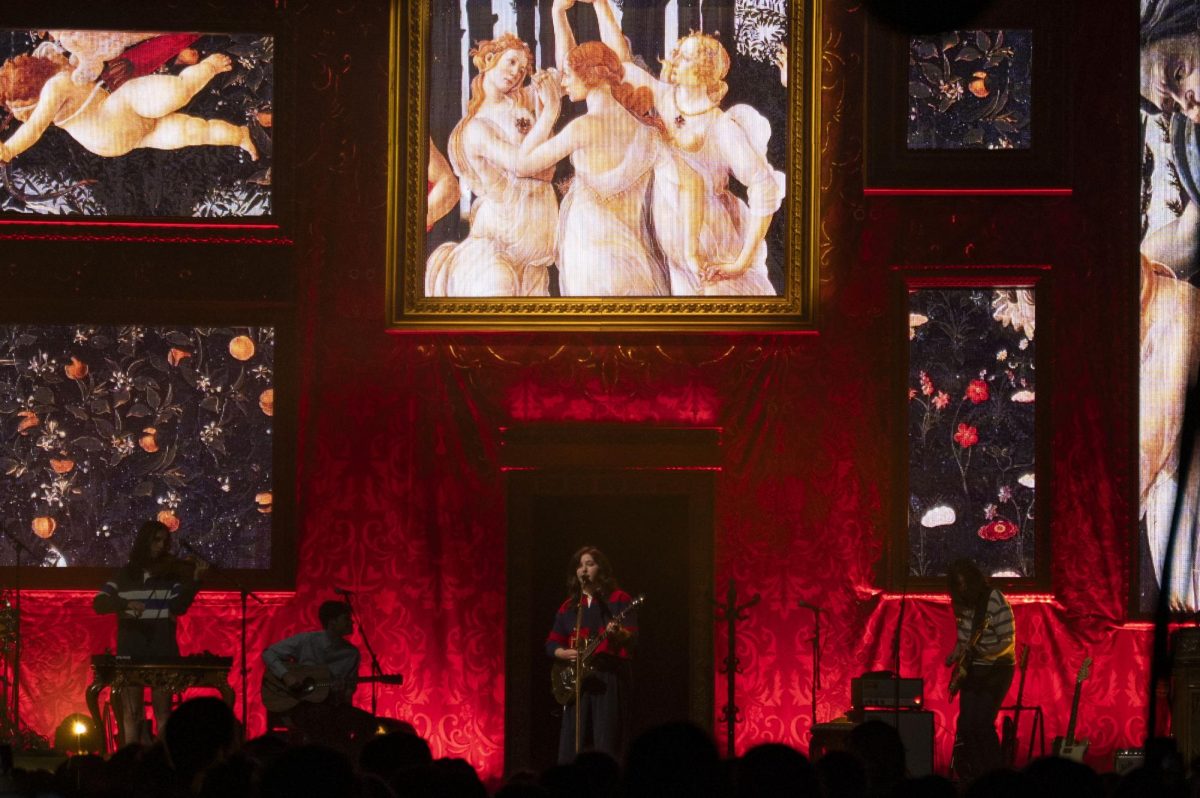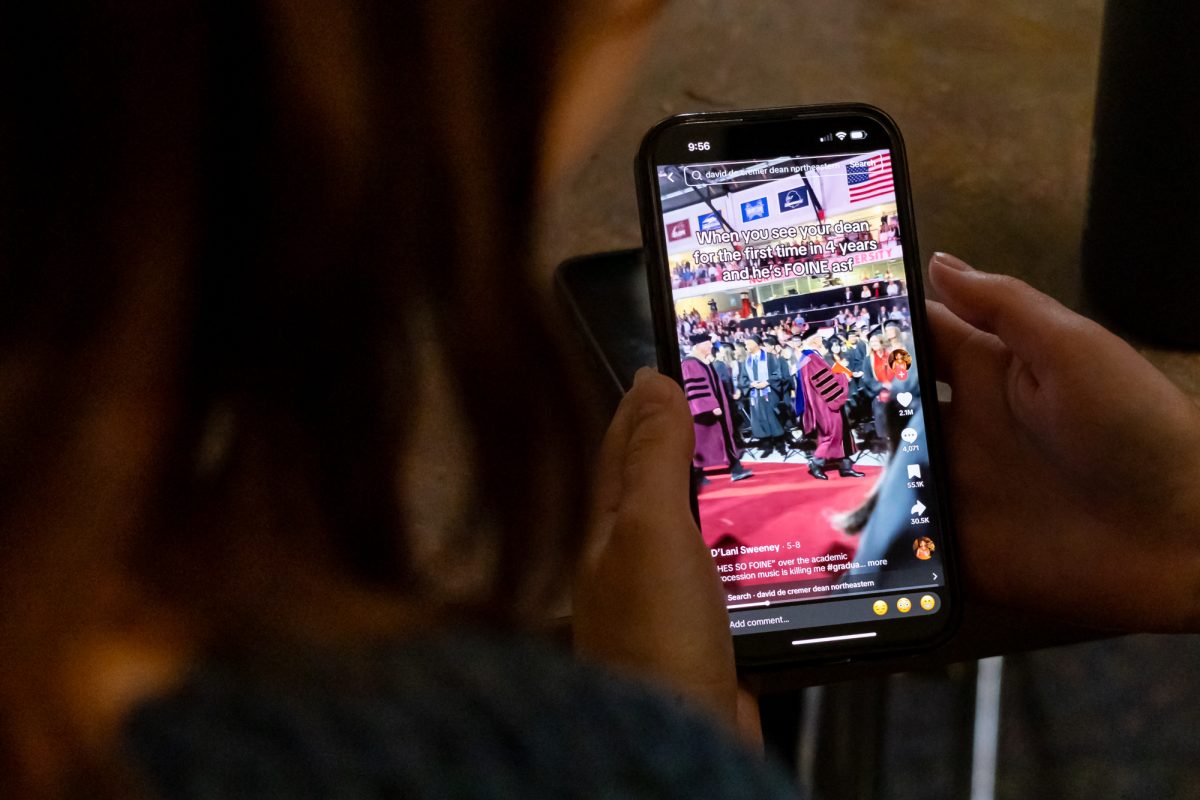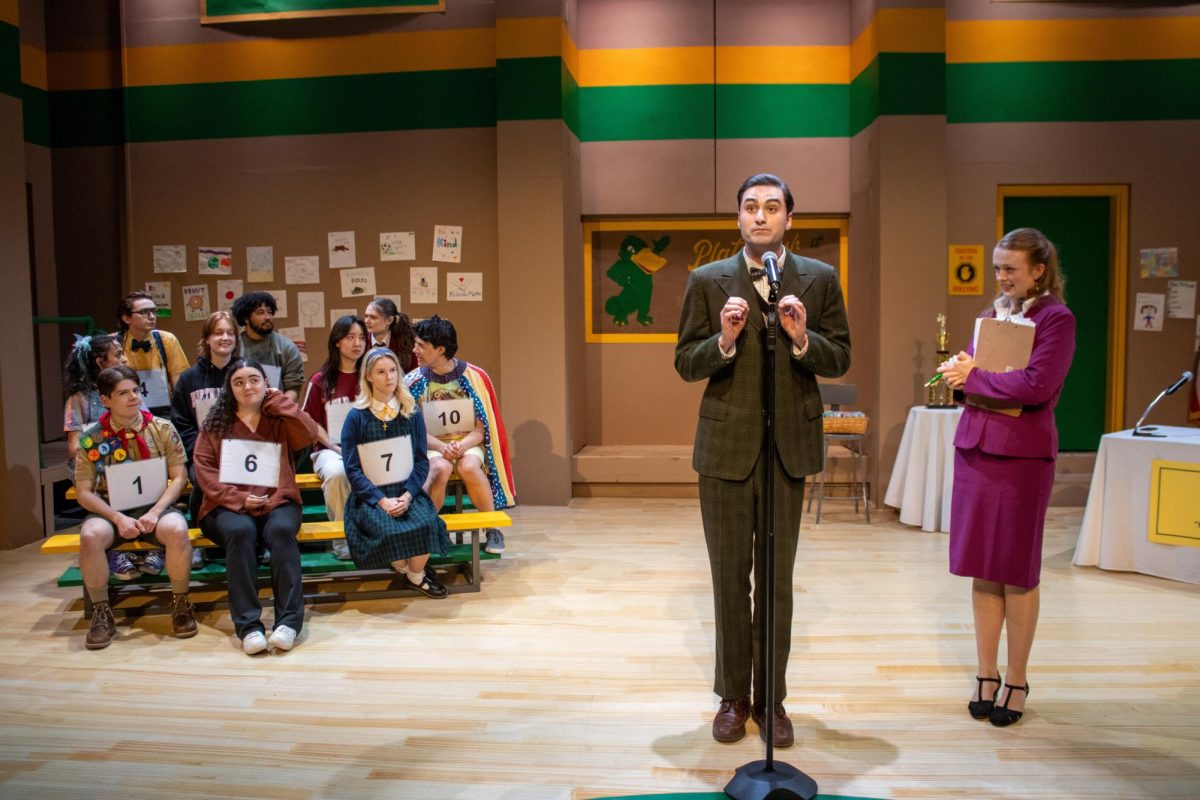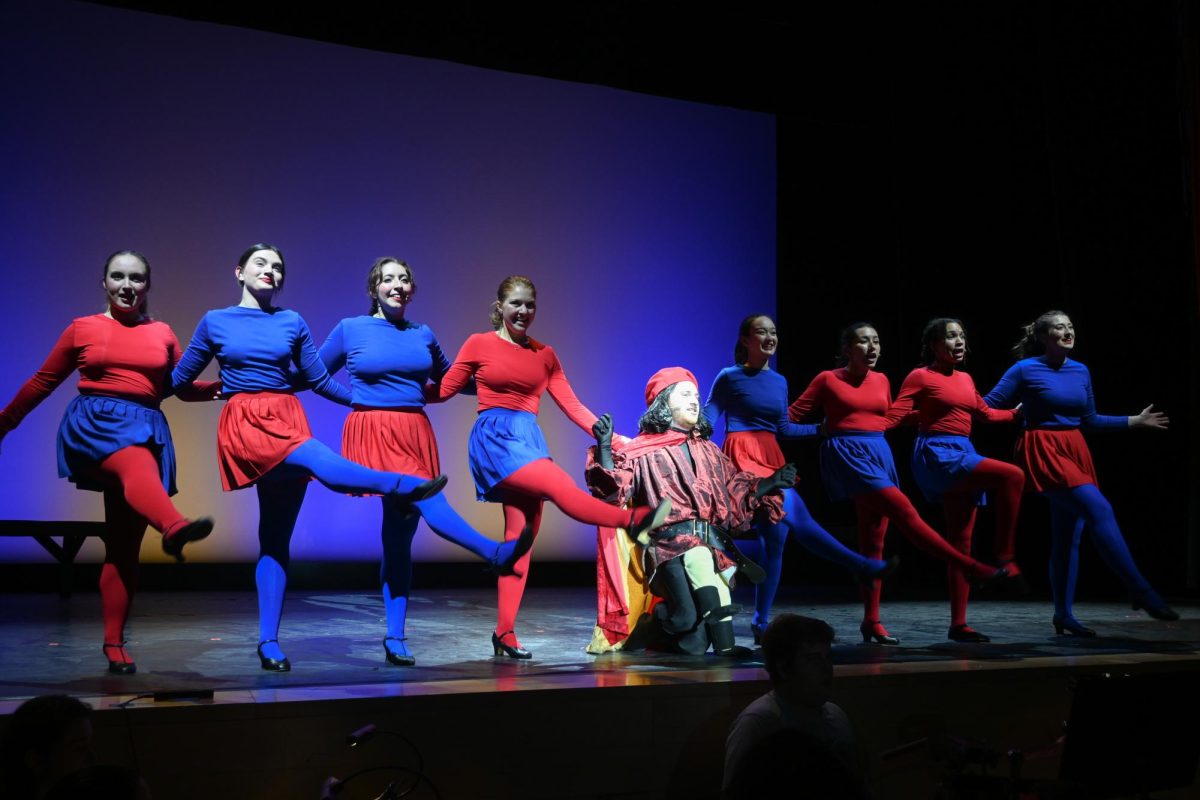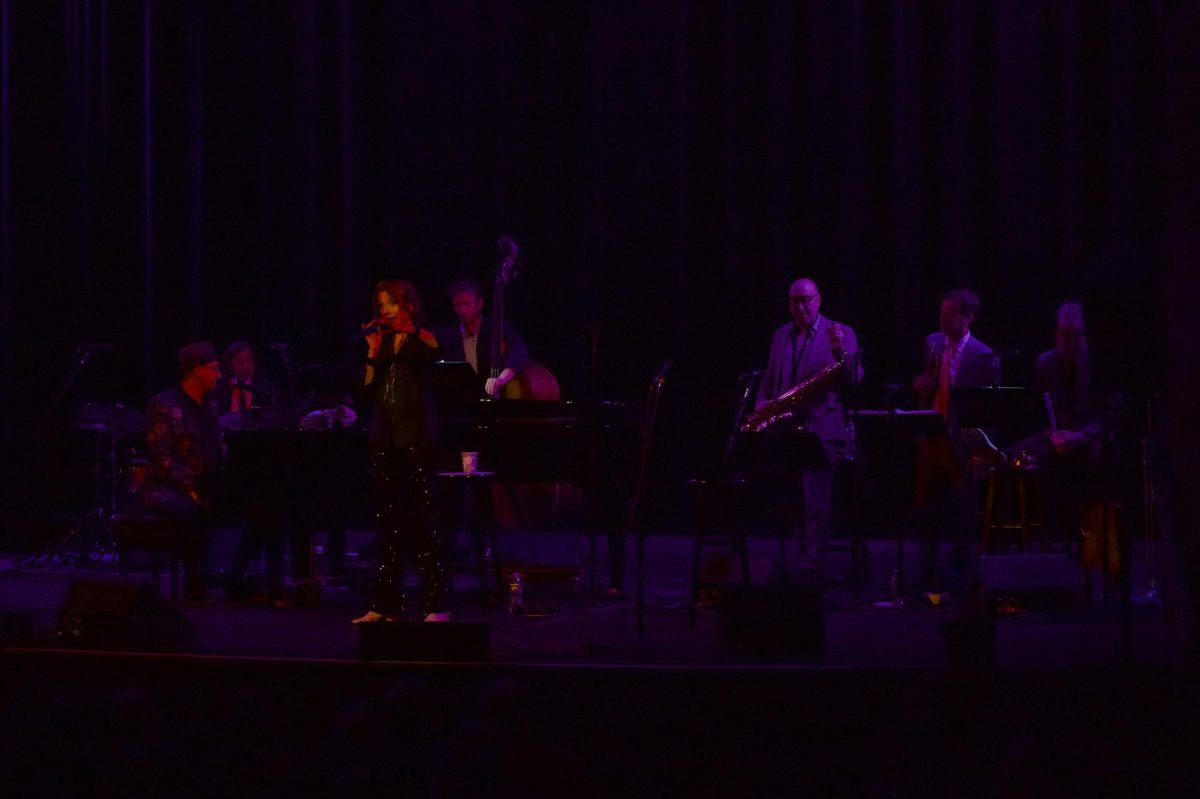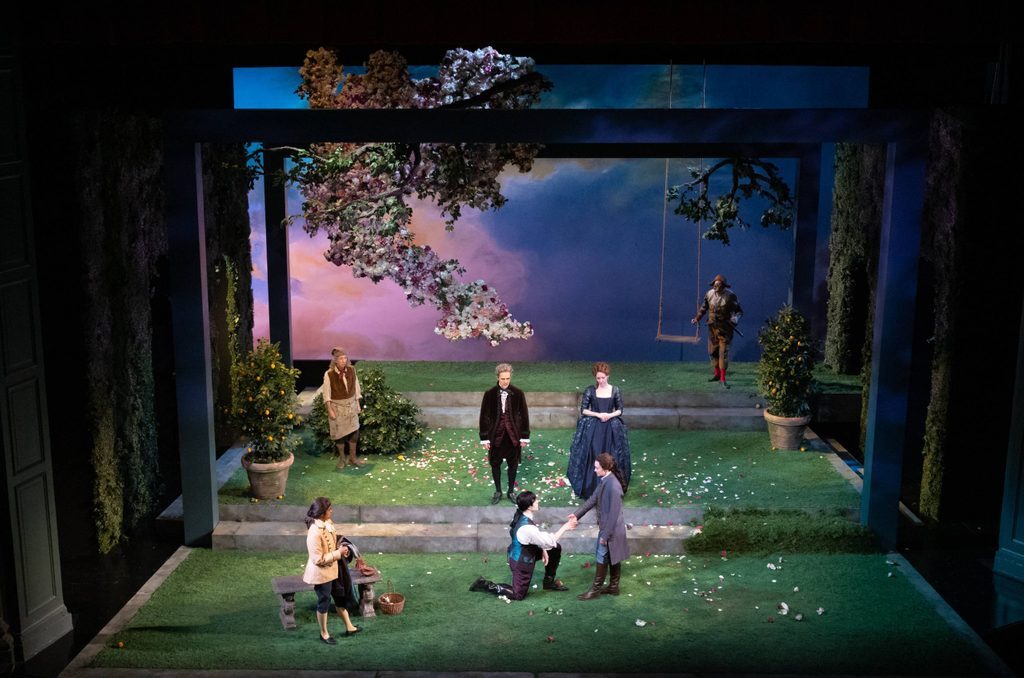The Emerson Colonial Theatre opened its production of “Pretty Woman: The Musical” Feb. 27 to the delight of showgoers. Based on the 1990 romantic comedy of the same name starring Richard Gere and an Oscar-nominated Julia Roberts, the musical did a thorough job of translating the classic story from screen to stage.
The show centers around Edward Lewis (Chase Wolfe), a wealthy businessman and investor, and Vivian Ward (Ellie Baker), a young woman who recently resorted to prostitution after falling on hard times. It begins in a Hollywood strip of bars and other adult establishments where Vivian and her roommate Kit (Lauren Esser), a fellow prostitute, begin arguing over rent, their landlord having earlier burst into their apartment to demand $300 in overdue payments. While Kit doesn’t seem bothered by their pending eviction notice, the more responsible Vivian scrambles to collect the funds by scouting out men willing to lighten their wallets for a fun night in town — or in bed.
During the song “Anywhere But Here,” Vivian reveals that this isn’t her ideal way of making a living, though, as she longs for a life away from the streets.
Baker sings, “The sidewalk doesn’t suit my soul / I’ve got to make some changes and take control” and “I can see where I want to be / It couldn’t be more clear / Anywhere but here” in a heartfelt, hopeful tone.
Amid the hustle and bustle of Hollywood, a lost Edward pulls up in his luxurious silver 1989 Lotus Esprit SE sports car, seeking directions to the Beverly Wilshire Hotel for a business matter. Vivian offers them up, but not before charging $50.
As it turns out, Vivian is a car aficionado and, before long, they both end up in Edward’s penthouse hotel — an ironic spot given his fear of heights, though he ultimately doesn’t seem to mind being multiple stories above ground level. Needing a companion for his social outings, Edward decides to hire Vivian for the entire week he’s in town.
In the scene where they settle on a rate, Edward asks Vivian to name her price. She suggests a measly few hundred dollars, denoting her low self-esteem, and Edward counteroffers with $3,000. Captivated by the cash, she takes it.
Throughout the week, Edward falls in love (“Something About Her”) with Vivian’s quirky behavior that deviates from the stereotypical hooker, and the musical ends with them together romantically.
Maintaining the film’s comedic nature in the musical, there was one scene in particular that made the audience giggle more than usual. When one of Edward’s colleagues enters his hotel room, Edward tries to remove any trace of a woman’s presence. The bellboy, Giulio (Connor Kabat), grabs Vivian’s wig and mimes it as a mop, earning hearty laughter that echoed throughout the auditorium.
An exquisitely decorated set made it clear there was thought put into each artistic element. The classic Hollywood Sign was strategically placed on stage so that the actors and audience appear to be stationed “behind” it, with the letters appearing in reverse order to both groups. One interpretation of the intentional placement is to show the audience what goes on “behind the scenes” in Hollywood.
The costumes were equally well developed, with each scene having its own unique wardrobe that helped contextualize what was happening on stage. From posh dresses and blazers in the “Rodeo Drive” scene to sexy brassieres and knee-high boots in prostitution alleys, the clothes actors wore were unforgettable.
The original film’s fashionable looks clearly influenced showgoers as well, with multiple attendees sporting their favorites from the musical or movie. One attendee wore an ornate black lingerie set and thick black eyeliner while another donned the iconic red gown from the scene where Vivian and Edward see the opera.
Along the same lines of “opera,” the vocals were on point. As Kit, Esser made her impression on the audience with her robust vocal belts, drawing thunderous applause each time, while Wolfe’s voice had a country twang that perfectly suited his solos, “Everything About Her” and “Freedom.” Violetta (Sarah Wang), the main character in the opera’s storyline, had an amazing solo that transported guests to the tragic story of “La traviata” by Giuseppe Verdi. About a courtesan falling in love with a nobleman, the song mirrored the story of Edward and Vivian, albeit with a tragic twist. The clever choice of song created great juxtaposition, allowing viewers to discern the similarities and differences between the two tales.
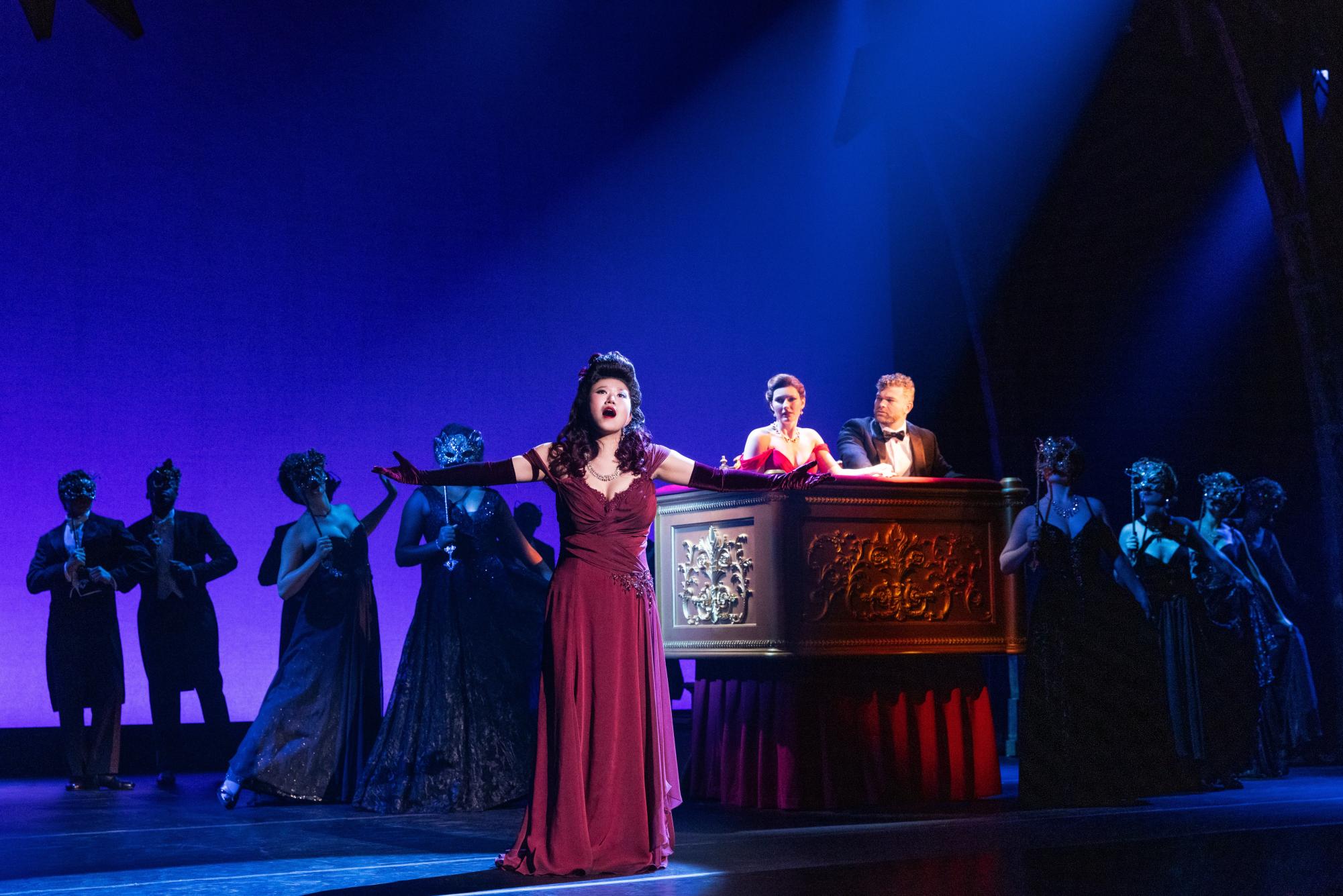
Where “Pretty Woman: The Musical” fell short, though, was in its choreography: Bland, unembellished choreography sold the talented actors short. Dance numbers should add to the scene and have a novelty factor, but, in this case, they seemed unoriginal and lacked complexity. If the musical ever has another run, it has great potential to adjust choreography to better suit the production.
Another area that, understandably, felt outdated was the cliche trope of “man saves woman” and Vivian’s theme of “she’s not like other girls.” The reason is straightforward: The musical was based on a 1990 film that reflected the societal values of the time. When writing the musical, which was first released in 2018, the creative team could have — and perhaps should have — tried to modernize the story. That said, avid “Pretty Woman” movie fans must be satisfied since the musical closely resembles the successful film.
Despite the musical’s weaknesses, it was an overall success. The audience gained insight into timeless themes, such as the harsh realities of prostitution and its class connotations. It was also enjoyable to see that Vivian’s character was multifaceted, going beyond what the title claims and breaking stereotypes of what a sex worker is.
The musical served as a reminder that society is slowly becoming more accepting of sex workers because, after all, they are just like anyone else trying to make ends meet. Vivian’s tenacity and ambition highlight the importance of a dream, because what is a pretty woman without her dream?
